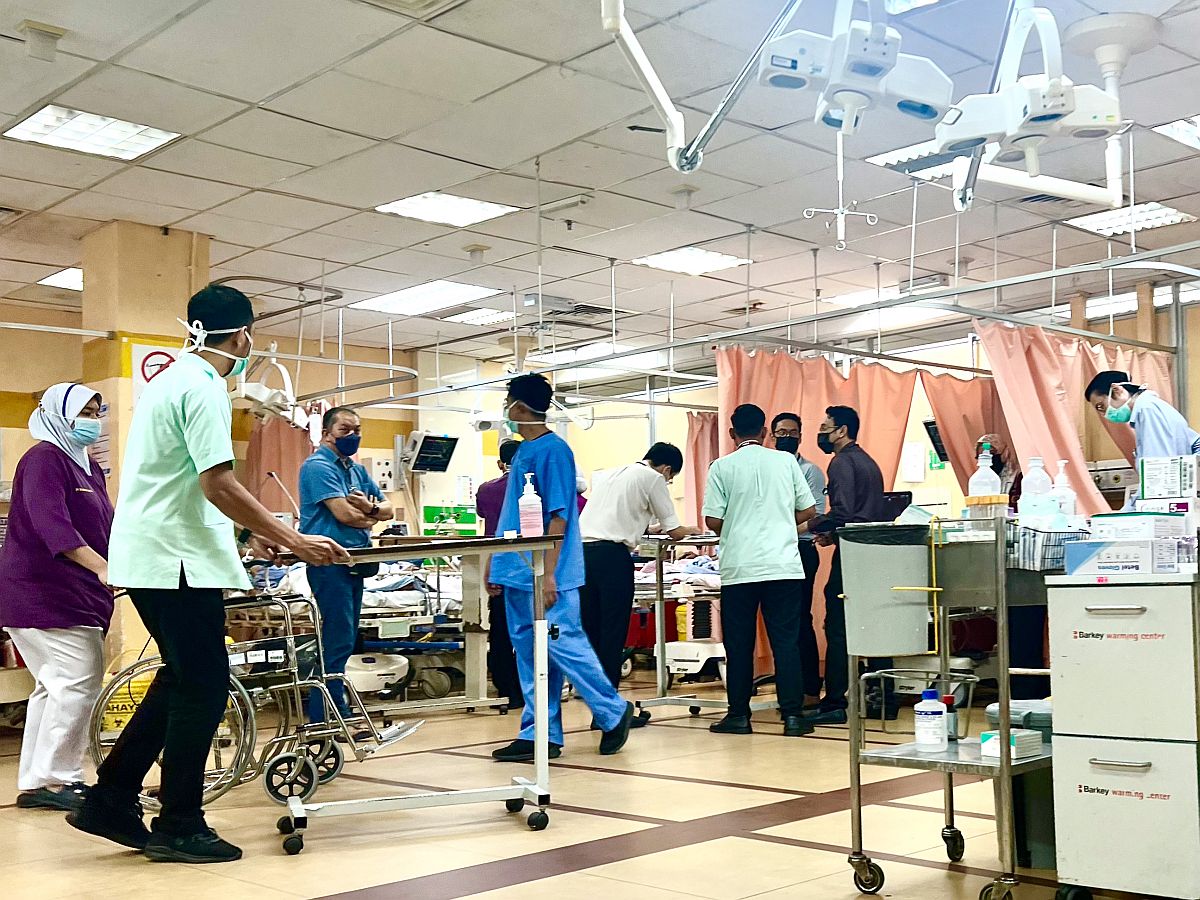The College of Physicians of Malaysia wishes to thank the Health Minster for pledging his commitment to resolving the ongoing specialist training issues.
The College is also relieved to note that the Ministry of Health has no plans to abolish the Parallel Pathway Programme.
The College of Physicians of Malaysia represents all Internal Medicine, Psychiatry and Rehabilitation Medicine Specialists in Malaysia. Internal Medicine specialisation occurs after housemanship, and currently medical officers either specialise in Internal Medicine through the Masters of Internal Medicine offered by local universities or the Parallel Pathway offered by the Ministry of Health.
Internal Medicine Training represents a vital conduit into further subspecialisation into the fields of Cardiology, Dermatology, Endocrinology, Advanced Acute Internal Medicine, Infectious Disease, Geriatric Medicine, Haematology, Nephrology, Neurology, Palliative Medicine, Pulmonology, Rheumatology, Gastroenterology and Hepatology.
Hence, any impact which adversely affects Internal Medicine training will have an adverse domino effect on all the above subspecialities as well.
The Parallel Pathway Internal Medicine – which has been and remains by far the main pathway for training physicians for Malaysia – comprises a structured training programme that encapsulates four years of supervised training within the Ministry of Health, while incorporating Membership of the Federation of the Royal College of Physicians UK or the Royal College of Physicians Ireland.
The Parallel Pathway currently offers training in internal medicine, utilising a self-sufficient system leveraging primarily on trainers and resources within the Ministry of Health itself.
The College of Physicians unequivocally supports the Parallel Pathway for the training of specialist physicians in Malaysia. The College also supports the Masters programmes being run by local universities.
Both the pathways are necessary to ensure that we are able to train as many specialists as possible of the highest quality in effort to address the serious shortage, while adhering to standards as determined by the Malaysian Medical Council.
It is imperative that both pathways continue to serve their role and complement each other. This is to ensure that Malaysian doctors are given an unencumbered opportunity to specialise further as physicians that ultimately cater to the Malaysian population.
The College of Physicians also urges a relook at policies governing HLP scholarships that are limiting options for specialisation into Internal Medicine. Furthermore, this allows doctors the option of self-funding their specialist training within a structured training programme, while adhering to standards.
This removes an unnecessary financial burden on an already overstretched system.
The College of Physicians is gravely concerned by the reduced number of registrations of trainees into the Parallel Pathway, which will finally impact upon the number of physicians to cater to Malaysia’s population.
The College of Physicians is the largest subscriber to the Parallel Pathway, with over 1,000 doctors in various phases of training within Internal Medicine. A large number of these trainees is based in East Malaysia, where the urgent need for physician-led health care is felt the most.
It is vital that that the College of Physicians also be involved in the devising of a long-term strategy that must also engage all stakeholders. This initiative in coming together and working together must also include existing medical societies that represent junior doctors.
Malaysia can only be stronger and stands to gain with all parties working together.
Strategic planning to meet our long-term goals is urgently needed in order to ensure that Malaysia is not only able to maintain its excellent international reputation in the quality of our health care, but also to ensure that the fraternity fulfils its great potential in becoming global leaders in medical care.
- This is the personal opinion of the writer or publication and does not necessarily represent the views of CodeBlue.







